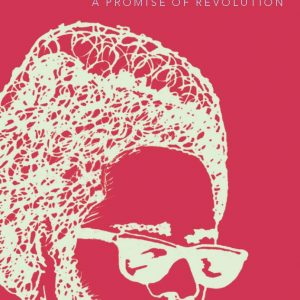Walter A. Rodney: A promise of revolution
Edited by Clairmont Chung. New York: Monthly Review Press, 2012.
Reviewed by Michael O. West
Binghamton University, State University of New York
Walter Rodney was born in 1942 in colonial Guyana (then called British Guiana) and died in 1980 in postcolonial Guyana, almost certainly assassinated by the government of Guyana. In a short thirty-eight years, Rodney lived an amazing life, becoming at once a renowned scholar and a brave political activist.
After finishing high school in Guyana, Rodney attended the Jamaica campus of the University of the West Indies (UWI). He subsequently obtained a Ph.D. in African history from the School of Oriental and African Studies (SOAS), University of London. He then taught briefly at the University of Dar es Salaam in Tanzania, before returning to UWI as a lecturer. His second Jamaican sojourn was short, much shorter than anticipated. By now, 1968, the Black Power movement, like the revolution of 1968 to which it was related, had gone global. No sooner had Rodney returned to Jamaica than he became the leading voice of Black Power on the island. On the strength of this reputation, he was invited to the seminal global Black Power gathering of the year, the Congress of Black Writers, held in Montreal, Canada, in October 1968. On returning to Jamaica from the Congress, Rodney was denied reentry. The Jamaican government, which shared with other neocolonial regimes in the Caribbean a common paranoia about Black Power, banned Rodney as an undesirable alien, which sparked a rebellion by urban youths, for whom Rodney was the beloved “Bredda Wally.” Rodney then returned to the University of Dar es Salaam, where he wrote the book for which he is best known, How Europe Underdeveloped Africa (1972).
Finally, in 1974, Rodney returned home to assume a post at the University of Guyana. It was not to be. The Guyanese government, which had quietly applauded his expulsion from Jamaica six years earlier, revoked the appointment. Instead of seeking work abroad, however, Rodney opted to remain in Guyana. Soon, he became a leading light in the Working People’s Alliance (WPA), which had one overriding aim: to heal the ethnic breach between Guyanese of Indian (South Asian) and African descent, especially the workers of both groups. In so doing, the WPA differed sharply from the two existing political parties, each dominated by members of the Indian and African middle classes with an investment in divisive ethnic politics. Forbes Burnham, the African-descended president who had been in power since independence in 1966, repeatedly threatened the WPA and Rodney personally. Burnham apparently made good on that threat on 13 June 1980, when a bomb disguised as a walkie-talkie exploded and killed Rodney…
Read the entire review in the Journal of Colonialism and Colonial History

Comments are closed.